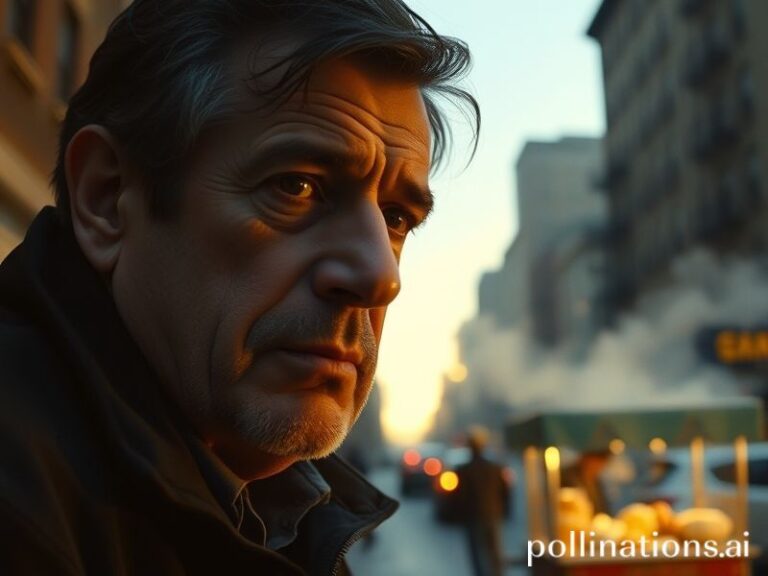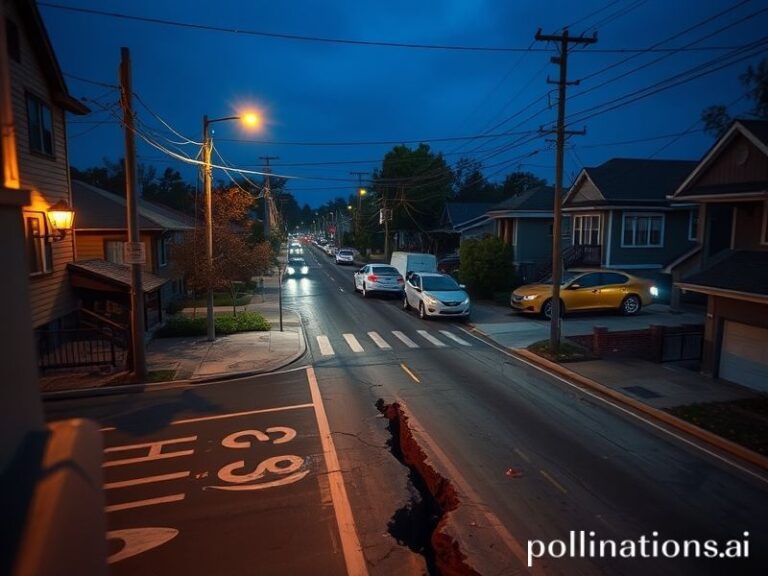Brett Anderson: Britain’s Accidental Ambassador of Elegant Doom
Brett Anderson and the Curious Case of the Global Everyman
By Our Man in the Departures Lounge
Somewhere between the duty-free cigarette counter and Gate C-19, the name “Brett Anderson” flashed across a hundred screens like a low-budget prophecy. In São Paulo it was spelled “Bret,” in Seoul “Buretteu,” and in the fluorescent corridors of Doha a Qatari announcer rolled every consonant as if auditioning for a Bond villain. The planet, it seems, has quietly nominated its own universal placeholder: a mild-mannered Englishman who once sang about heroin and heartbreak in a voice that sounded like mascara dissolving in acid rain. Thirty years later, Brett Anderson—yes, that one, the Suede frontman who soundtracked the last century’s final nervous breakdown—has become an accidental Rorschach test for whatever the hell we’re calling this century.
The international angle? Simple. While the UN argues over commas in climate accords and central banks play three-dimensional chess with currencies nobody trusts, Brett Anderson keeps touring. Not in the nostalgic, slot-machine way of legacy acts, but with the stubbornness of a cockroach after nuclear winter. Tokyo still sells out the Budokan for him; Santiago imports his melancholy like a rare wine; and in Warsaw, teenagers who weren’t born when “Animal Nitrate” scandalized the BBC now chant every syllable through surgical masks. In other words, the man has achieved the rarest of diplomatic feats: exporting British gloom without a single Royal Navy escort.
Trade officials could learn something from his logistics. When post-Brexit visa rules threatened to strand UK musicians in Calais like unwanted refrigerators, Anderson simply rerouted through Istanbul, picked up a Turkish rhythm section, and declared the Balkans “basically Kent with better coffee.” His tour rider reportedly still demands Yorkshire Tea, but customs officers from Ljubljana to Lima have learned that contraband nostalgia is not worth the paperwork. One could almost hear the collective sigh of relief from beleaguered bureaucrats: at least someone still believes in borders being porous for art, if not for refugees.
Meanwhile, Spotify algorithms have turned Brett into an accidental ambassador for Anglo-Saxon weltschmerz. Curated playlists titled “Rainy Berlin U-Bahn Vibes” or “Existential Dread in Jakarta” serve him up between K-pop and reggaeton, proving that algorithms—like bored aristocrats—eventually tire of their own decadence and reach for something elegantly miserable. Globalization’s punch line: a kid in Lagos discovers Suede while searching for lo-fi hip-hop to study to, and suddenly “The Drowners” becomes the soundtrack to a thousand late-night cram sessions. The British Council could never.
Of course, the cynic’s view is that Anderson’s persistence merely fills the vacuum left by collapsing empires. The UK no longer exports coal, steel, or even coherent foreign policy; instead it offers a lanky singer in a black suit, crooning about trashy glamour to audiences who now experience trashy glamour chiefly through Instagram filters. Every ticket sold is a small act of soft power, a receipt for cultural taxidermy. Yet the audiences don’t seem to mind. In Mexico City, a fan told me Anderson’s songs “feel like the last honest thing England ever made,” which is both a compliment and an autopsy.
And so we arrive at the broader significance: Brett Anderson’s global footprint is a reminder that influence no longer requires aircraft carriers or trade surpluses—just the willingness to stand on a stage in Zagreb at 1 a.m. and confess, in the key of wounded baritone, that everything beautiful eventually curdles. It’s a message so universal it translates even when the subtitles glitch. While diplomats negotiate the next century’s disasters, the tour bus idles outside, diesel fumes curling into constellations that look suspiciously like the old British Empire—diminished, threadbare, but still humming the chorus.
In the end, perhaps this is what we export now: the exquisite knowledge that the party ended decades ago, coupled with the stubborn grace to keep dancing. Brett Anderson doesn’t solve geopolitics; he simply provides the perfect after-party playlist for its slow collapse. Which, in 2024, is as close to international cooperation as we’re likely to get.







